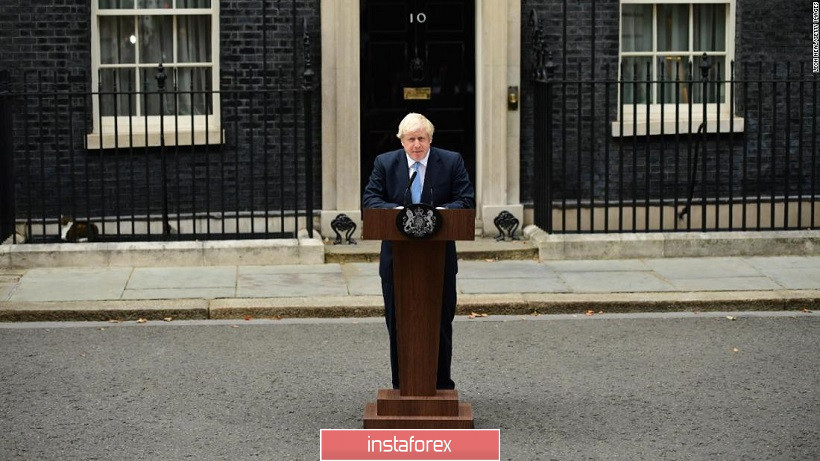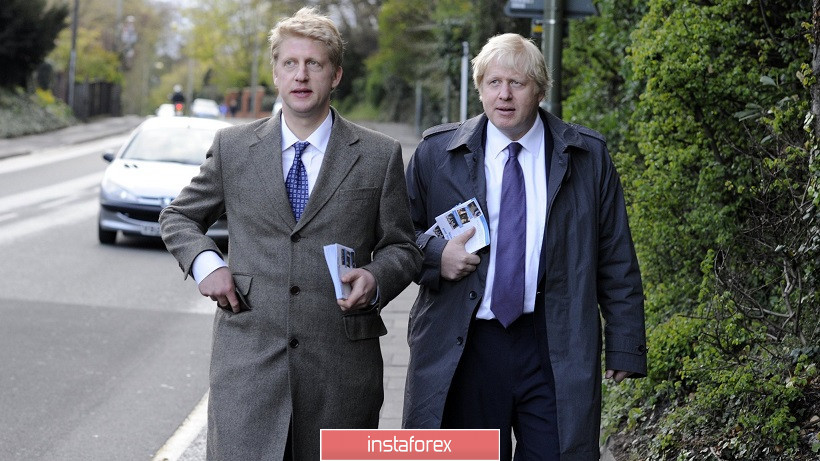Newspaper headlines today are full of reports that Boris Johnson was defeated in the British Parliament. Indeed, tonight the deputies of the House of Commons supported the bill, which obliges the Cabinet to postpone the country's withdrawal from the European Union until January 31, 2020. The MPs adopted this law with amazing speed - in just a few hours they approved it in all three readings. Prior to this, the deputies refused the prime minister's request to hold early elections on October 15. Only 298 deputies voted for this initiative with the required 434 votes (i.e. two-thirds of the parliament). The threats of the leadership of the Conservative Party to exclude "dissidents" from their ranks did not affect many Tories: the Parliament knocked Johnson in a single rush.

The prime minister accused the Opposition leader - Jeremy Corbyn - of hypocrisy, as the Laborites have insisted on holding early elections over the past two years. But when they had the opportunity, they voted against. Corbyn replied that Opposition forces would support the re-election - but only after a law came into force that prohibits the British government from implementing a "hard" Brexit. The fact is that the corresponding bill was adopted only by the Lower House of Parliament, and now it must pass the millstones of the Upper House. But it is worth noting here that the House of Lords is not an appeal court. Having adopted their amendments, they send the document back to the Lower House of Parliament, where MPs may or may not support it. Afterwards, the bill returns again to the Lords. In other words, the House of Lords can comment, forcing the House of Commons to return to this issue. And since there are no majority of conservatives among the lords, the likelihood of such a scenario cannot be ruled out.
However, the current situation is unlikely to significantly change the general situation. According to most analysts, this law will ultimately be approved by the Upper House of Parliament. The only question is the lack of time - the House of Lords can theoretically significantly delay this process. At least, if the Lords will repeatedly return this bill to the House of Commons, then the deputies simply will not have time to agree on it until October 31, given the five-week forced "royal vacation" of MPs. In other words, if the chambers of Parliament play a kind of political "table tennis", this will negatively affect the pound. This is unlikely, but still possible. But if the law comes into force before October 31, the pound will once again receive significant support.
It is worth noting that Boris Johnson received a "stab in the back" not only from his party members in Parliament. This afternoon, Joe Johnson, associate minister of universities and science, who is the brother of the current prime minister, announced his intention to resign due to political disagreements. According to him, in recent weeks he "has been torn between loyalty to the family and national interests." And in the end, the scales leaned toward a state position. Joe Johnson has always been a supporter of Brexit - but in its soft performance. In his opinion, withdrawal from the European Union should be carried out only after reaching an agreement with Brussels. And although at one time he voted against Theresa May's deal, he didn't go on about his brother, who led (and is still leading) the country to a chaotic exit from the EU.
The demarche of Boris Johnson's younger brother is more indicative, which implies the weakness of his position. The number of Conservatives who somehow left their party this week exceeded 20 people. Earlier this week, MP Phillip Lee went over to the Liberal Democrats, after which the Tories lost a majority in the House of Commons. Yesterday, 20 Conservative deputies voted to introduce a bill to postpone exit from the EU on the agenda. On the same day, Boris Johnson expelled them from the party. Today, the ex-head of the Conservative Party, Caroline Spelman, independently stated that she would not participate in the next election, noting that she also voted for the postponement of Brexit (but for some reason she was not expelled from the party).

Thus, the "house of cards" of Johnson's strategy collapses. More recently, the prime minister actually attracted the queen to his side, trying to block the House of Commons' work with her help. But this step only rallied MPs against him: Johnson outplayed himself, trying to get Britain out of the EU at all costs on October 31.
The pound reacts to events accordingly, demonstrating an upward impulsive movement in tandem with the dollar. Technically, bulls of the pair need to gain a foothold above the 1.2350 mark (the middle line of the Bollinger Bands indicator on the daily chart, which coincides with the lower boundary of the Kumo cloud). In this case, the pair will easily enter the 24th figure, where the next resistance level of 1.2430 is located. If the House of Lords does not delay the consideration of the above bill, the pound will not only overcome these levels, but also gain a foothold in the new price range, in the region of 25-27 figures.





















